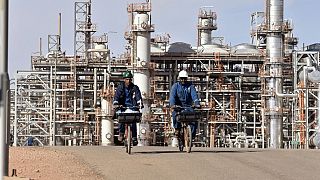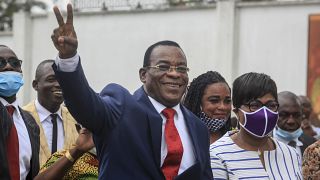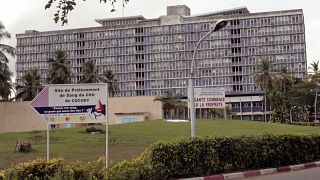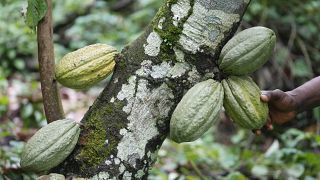Ivory Coast
African governments typically hail the discovery of oil and gas as a blessing, but poor villagers in southern Ivory Coast are among those who say it can also be a curse.
On the petroleum-rich coastline of Jacqueville, about 100 kilometres (60 miles) from Ivory Coast's economic hub of Abidjan, locals say they have yet to benefit from a decades-old bonanza.
Workers are busy setting down a third pipeline, cutting across farms and villages, to help bring gas from offshore rigs to power stations.
But in the village of Addah, found at the end of a bumpy, dusty road, people say they have yet to see any trickle-down from the boom and complain the whole issue is shrouded in secrecy.
"I don't understand why a village that has an oil rig has no fire station and no secondary school, or why the hospitals don't have supplies," said Jean Biatchon N'Drin, 32.
"We don't see any benefit from oil on our lives. They have been extracting oil since I was born, and I live in poverty," said Duval Nevry, 27.
"We feel that we have been abandoned -- the state has forgotten us," he said, gazing out to the rigs, visible from the village's sandy slopes.
Fisherman Justin Dagry Yessoh said fishing yields had been hit by the oil and gas development.
"Fishing hasn't been profitable since the pipelines came along," he said.
- Role of state -
Ivory Coast is the world's biggest supplier of cacao, the precursor of chocolate, accounting for 40 percent of the global market.
But it remains just a small producer of oil, pumping out 36,000 barrels per day in 2019, from a field off Jacqueville that is exploited by several foreign majors.
In 2018, crude production was worth around 500 billion CFA francs ($890 million, 762 million euros), according to a campaign group called the Extractive Industries Transparency Initiative (EITI).
Much flak has been directed at the Oil and Gas Council, an entity set up in 2008 gathering elected officials and members of the public to help development using petroleum revenue.
Its president, Leon Lobo, said the council had funded the construction of homes, clinics, water towers and schools, for an overall cost of 800 million francs.
But the council depended on the state for funding, he explained.
"We do not get money from the oil companies for our projects," he said.
Jacqueville's senator, Francis Lezou Bombro, agreed that state control was a financial chokepoint.
"If you want to help the Jacqueville region (through the energy boom), everything has to go through the state -- to the point that if the council wants to give a needle, it has to get state approval."
Seeking to lure investment, Ivory Coast takes only a small cut of income from foreign majors.
Analysts say the government will be under pressure to demand a bigger share in the light of a recent announcement of a major discovery of offshore oil and gas.
- 'Social time bomb' -
"The curse of oil happens when... tax receipts dry up, when the oil sector does not become integrated with the rest of the economy, and when resources derived from oil negatively impact the quality of governance and institutions," said economist Jean Ette.
Ette, who is also spokesman for a local campaign group called Clean Jacqueville, warned that anger among young people was acute.
"We have to act quickly... to defuse the social time bomb," he said.
Protests erupted in Jacqueville a number of years ago over perceived failures to benefit from the oil boom. Protestors erected barricades and burned tyres to block the construction of a pipeline.
Lobo, who is leaving the Oil and Gas Council after seven years to enter parliament, where he was recently elected an MP with the governing majority, said he had faith in "negotiating" with oil companies rather than trying to strong-arm them.
"We will get the benefits of oil extraction by peaceful co-existence with the oil companies and placing our trust in the state," he said. "Oil will not be a curse here."
Senator Bombro, who is also a member of the governing majority, said, "The ideal thing would be to give Jacqueville a special status, with a special investment budget for the region."











01:37
Record participation at 24th Sofi Great Ethiopian Run
11:05
Africa's hight cost of climate change [Business Africa]
01:17
COP29 finance talks lag as the summit reaches its halfway mark
01:38
COP29: What next for Africa's energy transition?
01:00
Civil society takes center stage at Brazil’s G20 social summit
Go to video
Libyan protesters block oil valves demanding release of kidnapped General